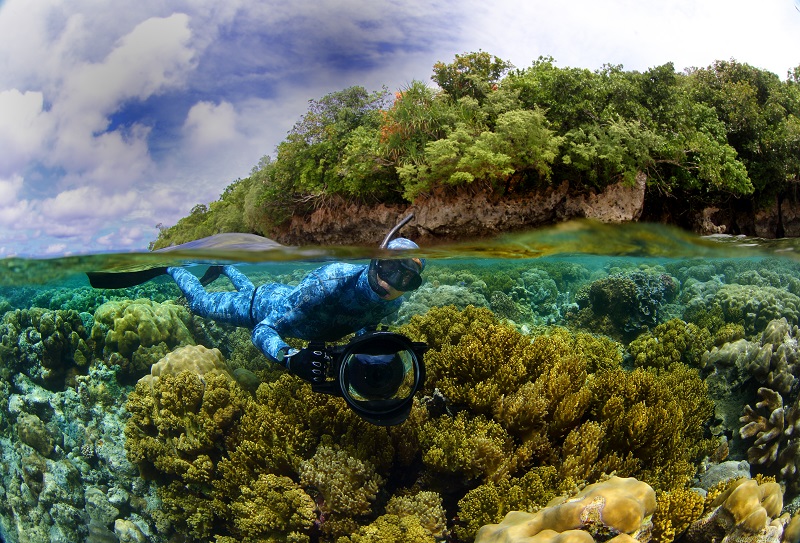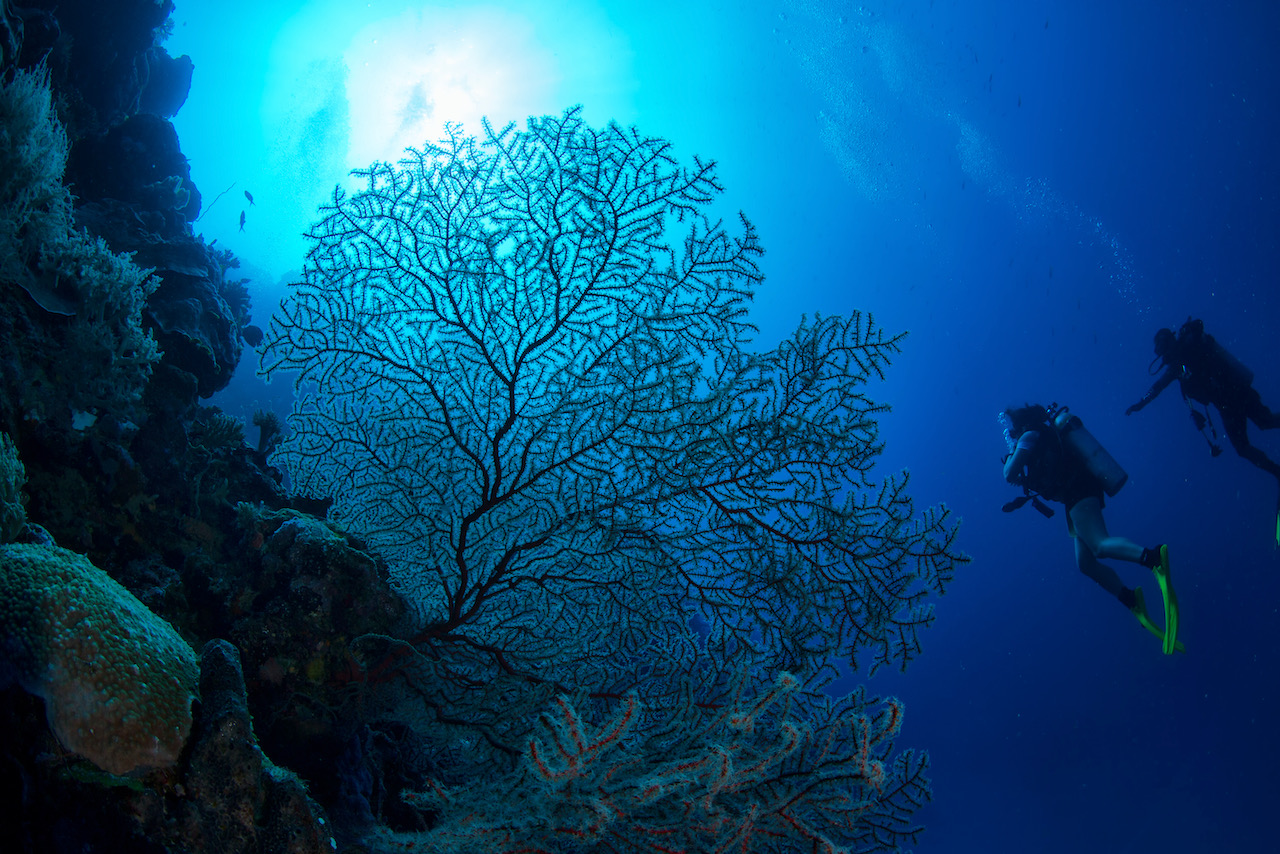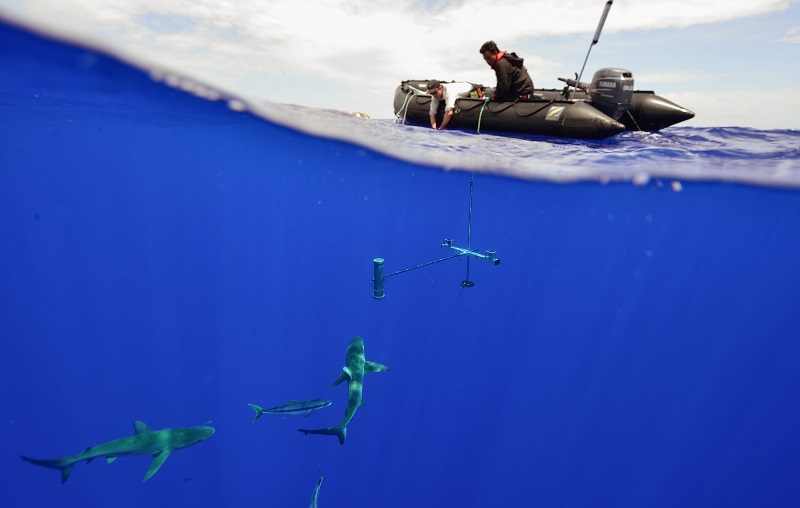PADI and National Geographic Pristine Seas have teamed up to protect at least 30% of the ocean by 2030. Here’s how PADI Dive Centers will play a critical role in the process.
To make a measurable difference in ocean conservation, it is paramount that we all work together — unified in both action and outcome. That’s why forming strategic conservation partnerships that leverage the expertise of our 6,600 PADI Dive Centers and Resorts, 128,000 PADI Professionals and 29 million PADI Divers is one of our key strategies to foster dive industry sustainability.
Our global reach is unique in that we can offer local action that creates meaningful ocean change around the world. We focus this action on the five buckets of the PADI Blueprint for Ocean Action: Marine Protected Areas (MPAs), coral restoration and conservation, marine debris, vulnerable marine species, and blue carbon.
That’s why we have partnered with National Geographic Pristine Seas to protect at least 30% of the ocean by 2030 through the creation of new marine protected areas (MPAs). This alliance will help advance our conservation and dive industry sustainability targets under the PADI Blueprint and PADI’s Pillars of Change, respectively. It also provides an unprecedented opportunity for dive centers and resorts around the world to protect their local dive sites.
 Courtesy of Pristine Seas, National Geographic Society.
Courtesy of Pristine Seas, National Geographic Society.
Together with National Geographic Pristine Seas, we’ve begun to execute a global study of the economic benefits of the dive industry. The initial survey was deployed in 2022, and the results will be shared in a scientific publication by early 2024. Led by researchers at the Scripps Institution of Oceanography and Simon Fraser University, this analysis will be used to inform governments how the creation of MPAs can create jobs and produce important economic outputs locally. We will also create resources that PADI Dive Centers can use to advocate for the protection of their dive sites. Often located in coastal areas, the waters divers frequent are invaluable to the community and the local economy.
Key insights from the survey that have been shared thus far have found that dive operators support thousands of blue economy dive- and dive-tourism-related jobs. Many of these are in smaller coastal communities and developing countries where they are a major, or the major, economic engine supporting hundreds of people.
“PADI ‘Mission Hubs’ play a critical role in our Blueprint for Ocean Action and are key stakeholders in the push for increased protection measures for the underwater world,” says Drew Richardson, President and CEO of PADI Worldwide. “Each PADI operator brings unique insights, local expertise, community leadership and unparalleled passion for our ocean. By coming together as a unified force, the PADI community in partnership with National Geographic Pristine Seas will provide unprecedented data, perspectives and skills to drive long-term ocean protections.”

This first-ever economic survey of the dive industry can create new MPAs around the globe. To allow species regrowth and recovery, the goal is to protect about 30% of the ocean. At present, about six percent of the world’s national jurisdiction oceans (non-international waters) are protected.
Diving is a non-extractive activity that benefits from and brings the public in contact with MPAs, and raising public awareness of diving’s economic power can help drive MPA expansion by showing governments, communities, industries and other entities that preserved and/or restored pristine marine environments produce significant direct economic returns.
Measurements of the success of this study and partnership will go beyond the number and size of new MPAs created. We plan to co-develop a monitoring program with National Geographic Pristine Seas to ensure long-term impact.
 Credit: Manu San Felix
Credit: Manu San Felix
In 2020, founder of Pristine Seas and National Geographic Explorer-in-Residence, Enric Sala, approached us with the idea to join forces to protect the ocean, combining his vision and proven track record of successfully creating MPAs with the global footprint and extensive reach of the PADI community around the globe.
To date, National Geographic Pristine Seas has worked to protect an area of over 6 million square kilometers (2 million square miles) through the creation of 24 MPAs.
Together with the influence and expertise of Enric Sala and his team at National Geographic Pristine Seas, PADI Dive Centers and Resorts can be a catalyst for lasting change and a return to a healthy ocean and balanced marine ecosystem.
“Ocean conservation benefits everyone, especially the diving sector. We are excited to partner with PADI and all their dive centers, resorts and professionals worldwide to foster the protection of popular dive sites all around the world,” said Enric Sala.
To learn more about the survey that PADI Operators participated in, watch this video narrated by Enric Sala.
Want to play your own role in protecting the oceans? Check out how you can impact PADI’s Pillars of Change or explore the things you can do to save the ocean as a diver. Alternatively, if you haven’t taken the Save the Ocean Pledge yet, sign today to become a part of the worldwide PADI community fighting to protect everything blue.
Share This
